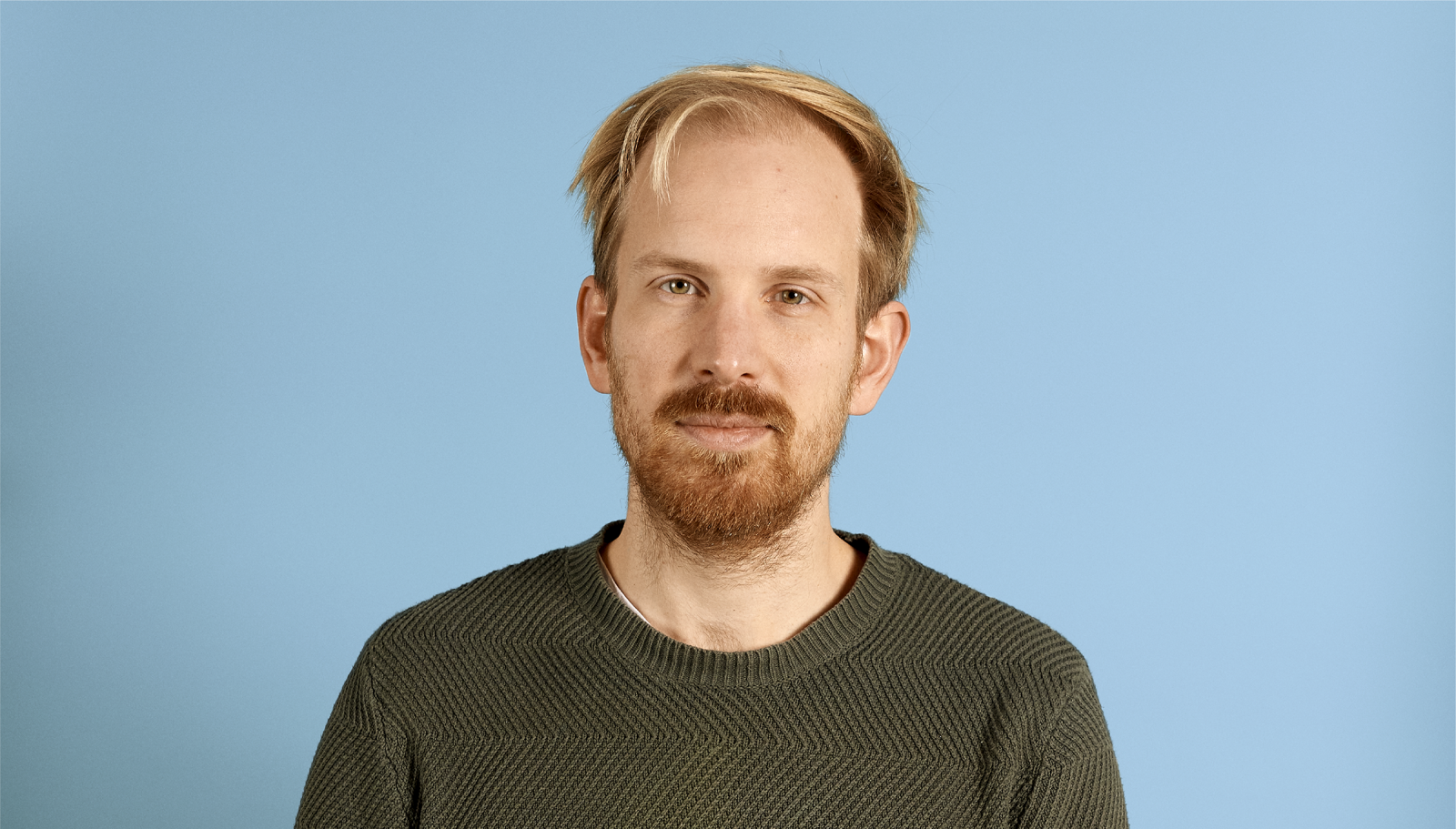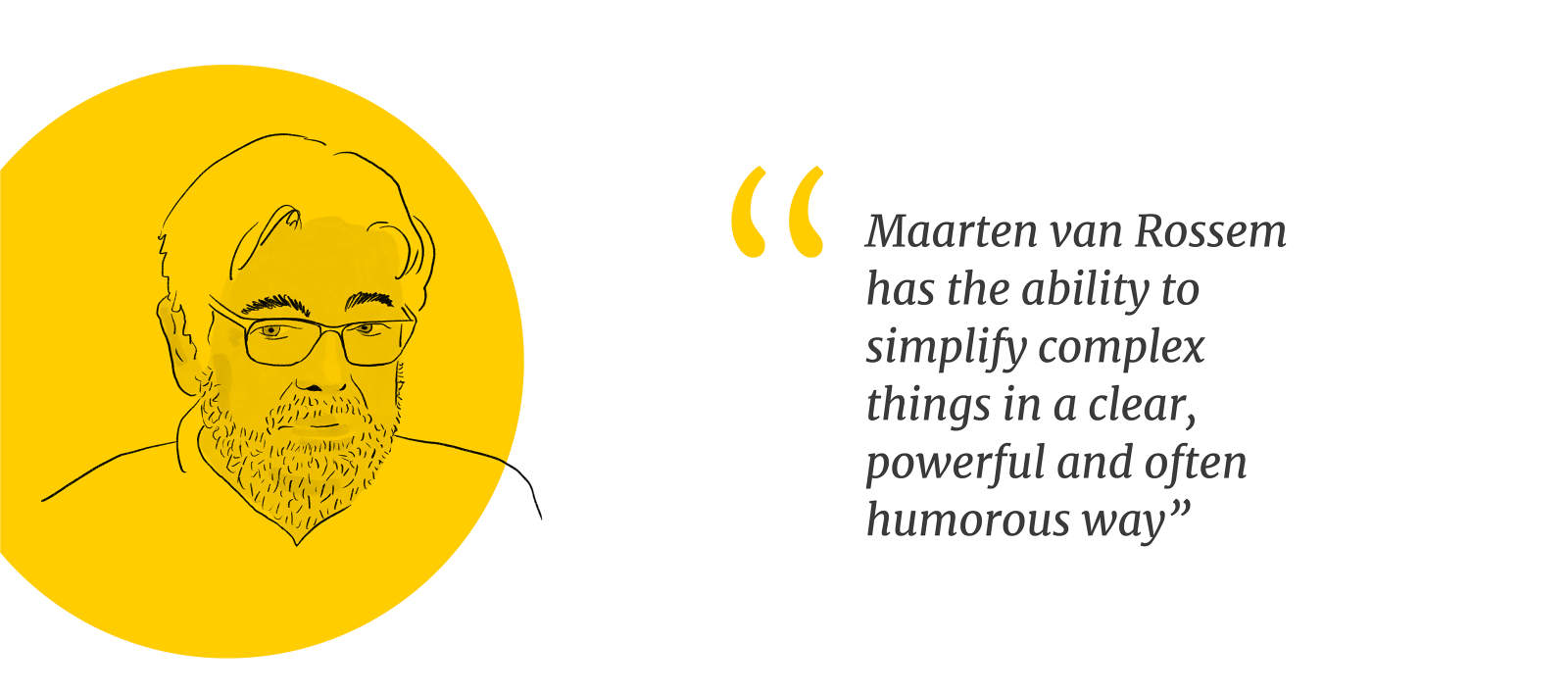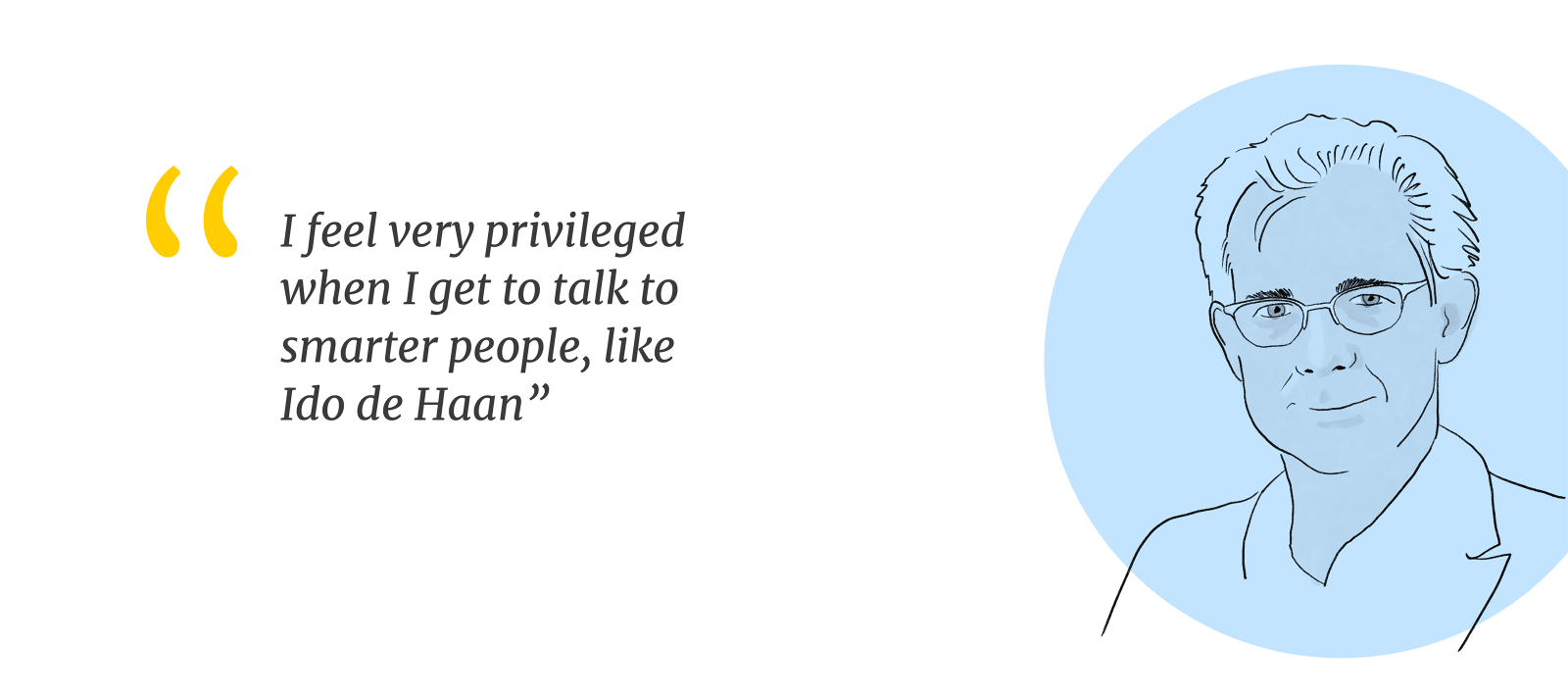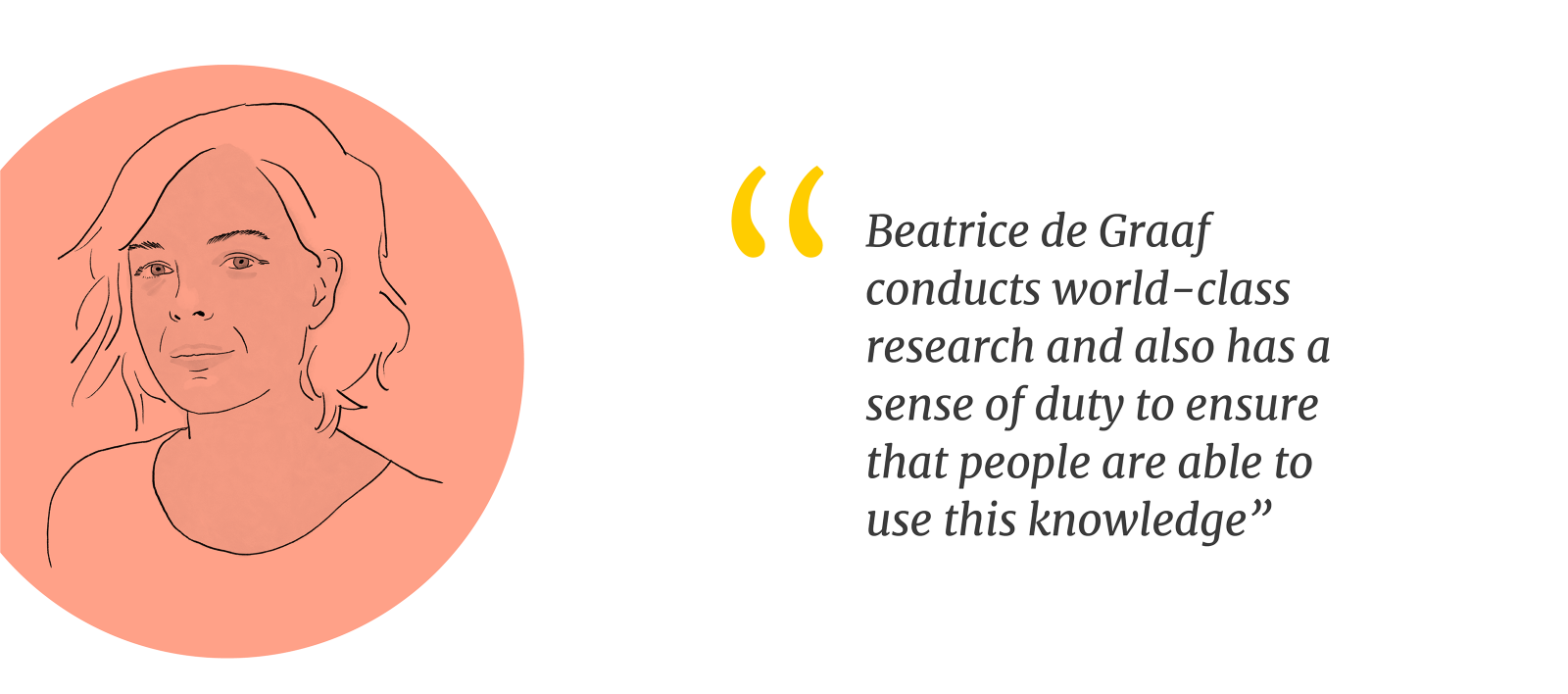Simplifying complex issues
‘I realised relatively early in my career that rejection isn't such a big deal.’ Rutger Bregman clearly isn't one to let other people’s opinions (or the fear thereof) hold him back. By the time he was just 32, the Alumnus of the Year had already published six books. And millions of people saw just how unafraid of confrontation he is during his appearance at the 2019 World Economic Forum in Davos and in an interview on Fox News. Which events have shaped the historian thus far, and who inspired him?

An important moment for Bregman was during his History degree programme, when he realised that he wasn’t cut out for a career in academia after all. ‘I reread one of my own papers and I could make absolutely no sense of what I had written. And yet I had earned a high mark for it. I thought: “Man, the academic world (or maybe just the world) is really strange sometimes.” I decided to only write things I understood myself.’

Much smarter than me
‘In that regard, Maarten van Rossem was a huge source of inspiration: I really loved his lectures. He has the ability to simplify complex things in an extremely clear, powerful and often humorous way, which lets him reach a wider audience. The same is true of Beatrice de Graaf. She conducts world-class research and also feels a sense of duty to ensure that people are able to use this knowledge, so that it can be translated into policy, for example.
Someone who also really inspired me is Professor Ido de Haan, because he’s so much smarter than me. I would talk to him and think: Yes! Why didn’t I think of that? He could rip three holes in my analysis right on the spot. I always feel very privileged when I get to talk to and work with smarter people and learn from them.’

Intellectual home
‘After graduation, I spent a year working at de Volkskrant. I learned a great deal from my time at the newspaper, but it was never really the place for me. I was incredibly lucky, because right around that time a new medium emerged and I got to work there: de Correspondent. It felt like I had found my intellectual home. A place somewhere between a university and journalism.
I wrote a few books there, including De meeste mensen deugen (Humankind: A hopeful history). Writing always involves a certain degree of loneliness, but at de Correspondent it’s also a collective process in some ways. Rather than being dominated by solo players, sometimes it’s almost like a marriage with shared ownership of ideas, in which everyone makes room for each other.
People tend to think that success is determined entirely by individual choices, or that there a few secret tricks to it. But the terribly dull bottom line is that you have to work hard and do your homework. And more importantly: in my case, I've just been extremely lucky.’

Not only does Rutger still remember his former teacher Beatrice de Graaf, but she also clearly remembers who he was back then. ‘It’s wonderful to come across your own student on the bookstore shelves, and with a book that brings a whole new approach to historical research. It’s even more special to see your student on the bestseller list, watch him on air with Tucker Carlson, and read that he’s hanging out in Davos. But the best part is that he still remembers his degree programme and his teachers. Rutger was a quiet but astute and constructively critical student – it wasn’t obvious at first, but it certainly stood out later on. Discussing papers with him was therefore always inspiring.’




